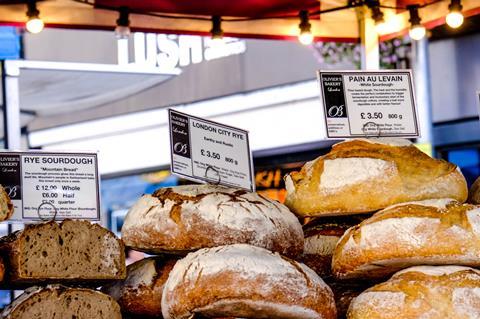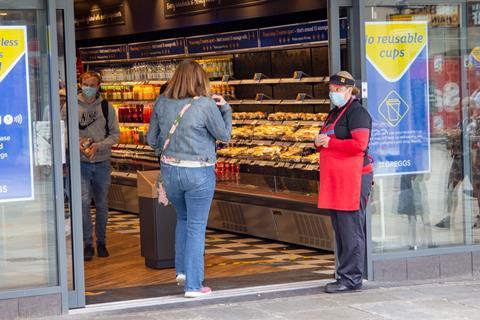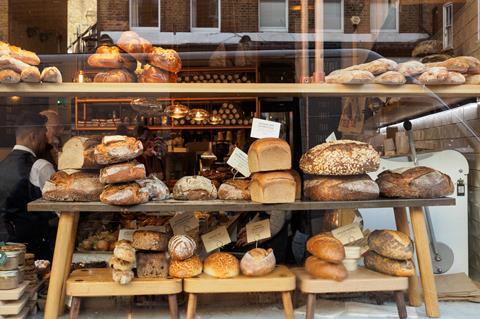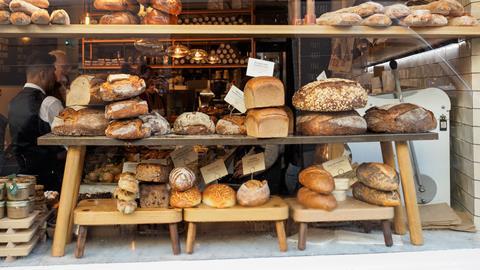The last 12 months have been a rollercoaster, and the baking industry has felt the impact along with the rest of society.
So what can we expect in 2021? We asked trade bodies to outline the challenges and opportunities ahead for the coming year.
Here’s what they had to say:

Craft Bakers Association
Karen Dear, director of operations
Over the past 12 months consumer behaviour has changed in many ways, with several of these trends expected to last long term. Key for craft bakers is the increase in shopping locally and interest in products offering proven provenance.
Both of these offer bakers significant opportunities and should be reflected in their marketing.
Alongside that, online shopping has seen a big surge – which is likely to continue. This is a trend many of our members maximised very successfully this year and plan on including in their offering going forward.
“Bakers will need to work to offer consumers affordable options”
From selling afternoon tea kits online, to general bakery products – shoppers value the convenience of buying quality foods from local suppliers online.
One lasting impact of the pandemic is the raised consumer awareness of the link between diet and overall wellbeing – so we would recommend bakers highlight any products that offer additional health benefits such as multi-seeded breads.
Some of the biggest challenges for bakery in 2021 will be around price and affordability – both for customers and bakers. The pandemic has had an impact on many consumers’ financial situations and, as a result, value for money will be a key concern for them in the coming year.
Bakers will need to work to offer consumers affordable options, while also managing pressures around things such as ingredient costs.
Brexit will, undeniably, present challenges, as bakers will need to interpret and action new guidelines and labelling – and as, at the time of writing, the final outcome is unknown, there may well be further challenges around tariffs that will need to be managed.
But whatever lies ahead, myself and the rest of the CBA team will be here to support our members.

Federation of Bakers
Gordon Polson, chief executive
While we are still unclear on what the challenges facing the bread and bakery industry post-Brexit will be, there is no doubt that the effects will be felt for years, not months.
There is also the challenge of the Northern Ireland Protocol meeting EU labelling when exporting, as well as the tariffs on importing EU wheat. This will have an even greater impact given that we are expecting to import more wheat from Europe next year than we have for many years.
The UK government has committed to reviewing the Bread and Flour Regulations in 2021. We are therefore urging our members and the wider industry to use this time to decide how we may respond to any government consultation.
“Bread will retain its position as a household staple in 2021”
There is no doubt that 2020 was a challenging year for the hospitality industry. However, as the pandemic begins to ease, we anticipate consumers will begin eating out more.
With bread playing a key part in the out-of-home meal occasion, particularly when it comes to breakfast and lunch, we are hopeful that its consumption within the food service channel will start to resume to its pre-pandemic levels.
We predict that bread will retain its position as a household staple in 2021 for a variety of reasons, including its convenience and value. However, there is still more work to be done in educating consumers on all that bread delivers from a nutritional perspective and this presents another significant opportunity for the wider bread and bakery industry.
Overall, the outlook for bread and bakery in 2021 remains optimistic, albeit a year of change. We will continue to support our members and the industry to ensure we’re prepared to deal with the challenges and maximise the opportunities that the new year will hopefully bring.

British Society of Baking
Richard Hazeldine, chairman
The first and most obvious challenge for 2021 will be the fallout from Brexit. Depending on how that pans out, we could well see disruption in the early part of the year.
There’s also the ongoing challenge of coronavirus. People’s habits are changing – not just their shopping habits but where they eat and socialise.
This time last year, if you were talking about working from home, a lot of people would have said they can’t do it and they had to get to the office five days a week. Now they’ve been forced to do it, and the genie is out of the bottle in that respect.
There’s a bigger emphasis on getting work-life balance right than there was 12 months ago. So, in 2021, people will try and make the best of both worlds and strike a better balance for their own personal circumstances, and the baking industry will have to adapt to that.
“People are looking to shop local”
For the big players, I think there are big opportunities in grocery retail. Some of the statistics you see show retail is up 18%-20%.
When it comes to the small guys, they’re a lot more flexible and they’ve shown us that they can adapt their businesses to become much more of a community enterprise in the smaller towns and villages.
People are looking to shop local. Some of the bakeries are providing a service and supplying the essentials for the community, rather than just the extras. That can develop further in 2021.

Scottish Bakers
Alasdair Smith, chief executive
The main challenge for those with a retail presence will be getting the return of footfall after months and months of restrictions, particularly in busy towns and city centres where there’s a high population of office workers who haven’t been around since March this year.
Hopefully, the vaccine rollout is going to start enabling that. I think a lot of bakery businesses have quite a loyal customer base and we will start to see people coming back to the places they’ve known and loved before.
What we have seen over the last few months, particularly from the independent bakeries and retail outlets, is they’re starting to get active on social media.
Within the social media space, they can create a sense of community, which can help them to reach out to their existing customers, as well as attract new people to try out their goods.
So, I think there’s a very powerful role for social media within the coming months for businesses to re-engage with their communities and not just their existing customers.
But there’s also the innovation we’ve seen in terms of getting online shops up and running, doing click-and-collect and deliveries.
In many ways, it would be a shame to see that die away just because we are getting back to a more normal set of trading circumstances.
“I think you have to be optimistic about 2021”
People will return to offices, but offices will be smaller, and people will be working from home more. So, maintaining a channel into those people who are continuing to work from home is going to be important.
The return of community stores and bakeries opening up and providing other provisions as well as baked goods has been interesting to watch. So, I think that an opportunity still to be exploited is to build even more on the move to buying local and buying high-quality craft-produced goods.
I think you have to be optimistic about 2021 given the year we’ve had and the signs we’re seeing now on vaccinations. Regardless of what happens, it’s going to be a whole lot better than what’s gone on in the previous nine months.

The Bakers & Confectioners Association
Gary Reeve, chairman
Covid-19 will continue to be a big challenge for the industry. The big question is, what do the next few months look like, and will the vaccine provide the freedoms we all crave and allow normal life to resume?
Another area is the decline of the high street. How will retail bakers help to buck this trend accelerated by the pandemic?
And, of course, there’s Brexit. Will raw materials become more difficult and expensive to source – likewise bakery equipment? What type of deal will the government achieve – if any – and how will it affect bakeries exporting products?
“Online ordering and home deliveries have increased exponentially in lockdowns”
When it comes to opportunities, online ordering and home deliveries have increased exponentially in lockdowns, so how far can bakeries go to exploit this market?
With the high street, will the demise of some retailers result in opportunities for shop sites in good high streets at probably lower rents than before?
With new trade deals post-Brexit, will this open up new opportunities for export?
As ever, the opportunities almost mirror the challenges, and it really depends on your perspective. It will, I’m sure, come down to those businesses that are strong, nimble and proactive to grasp the opportunities, while, inevitably, some will not.




















No comments yet